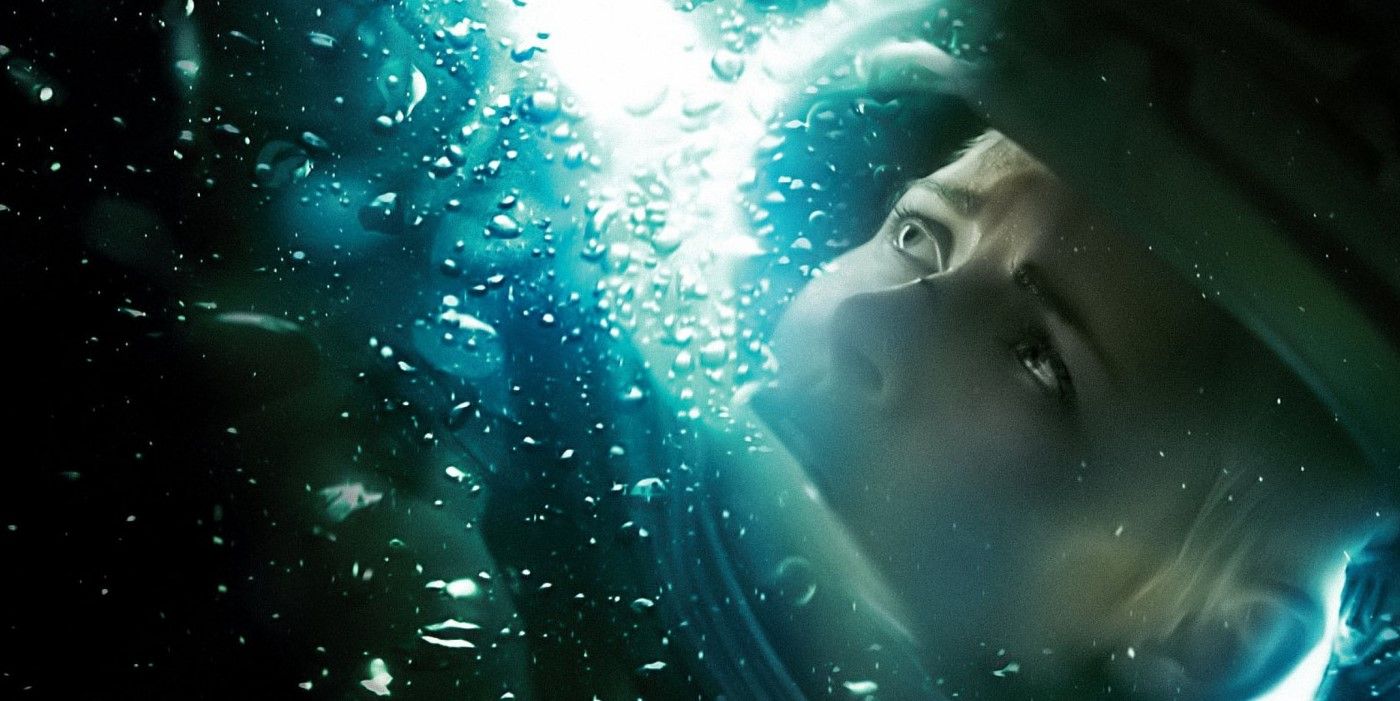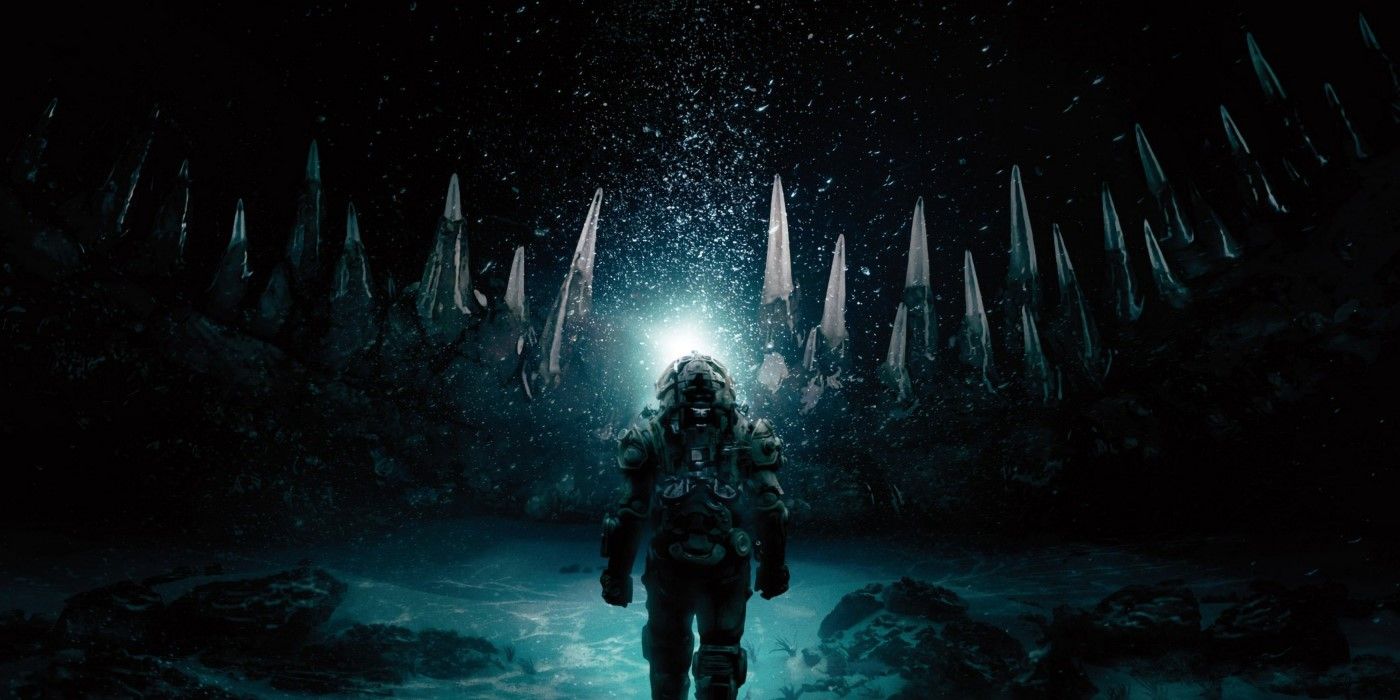Cosmic horror is a subgenre credited to H.P. Lovecraft. By definition, the term describes the idea of the fear of the unknown on a cosmic scale. In many of his stories, his characters often encounter beings or events so grand and beyond time and space that those subjected to it will often lose their mind. As a result, the idea that knowing something exists beyond the comprehensible becomes the most primal fear of all. While most films try to capture that feeling, few succeed, and 2020's Underwater is the rare success story.
Underwater follows a crew of oil drillers as they live on a subaquatic base off the Mariana Trench. Following a powerful earthquake, the base buckles under the pressure, forcing the crew to move to their escape pods. However, as they venture deeper into the ocean, they learn there are things stalking them. At first, Underwater leans into survival horror, akin to Ridley Scott's Alien, but by its climax, it's clear there is something far more terrifying.
Underwater plays on the claustrophobia that comes with deep-sea exploration and how that could affect a person. However, with the dive suits making them slower, and the fact that there are humanoid creatures chasing them, the suits feel more like coffins. Underwater's cosmic horror is a slow burn, and it begins with shots in said suit. At first, the fear of the unknown comes from not knowing if they will survive. It then evolves into wanting to understand and avoid whatever is hunting them, but as each unknown becomes known, the final act serves to make the survivors and audience feel smaller.
As the remaining members of the crew reach the secondary base, they come face to face with the mysterious creature's elder, the eldritch being known as Cthulhu. Lovecraft's creation is an ancient being, not unlike a God, who acts as a water elemental. He is humanoid in nature with tentacles on his face and the desire to reclaim the universe when awakened. The scope of his reason for being is unknowable, and in the film, he desires to reach the surface and spread his influence. However, because of the horror he represents, Cthulhu would likely drive those who see him to lose their minds, like in Lovecraft's The Call of Cthulhu.
While Underwater, at its core, is more than a monster movie, it does a great job at hinting toward the titanic reveal throughout the film. This is done by showing murals and newspaper articles describing strange events and showing a large creature attacking divers. However, by the time Cthulhu is revealed, Underwater basically tells the audience it's too late to go back. Even in the murkiness of the ocean, the brief glimpses of him evoke a sense of hopelessness for the survivors and humanity.
The hopelessness felt from his presence becomes a central theme for Underwater as the survivors decide to blow up their base to destroy him. The act symbolizes a person taking hold of their negative emotions and making way for something more hopeful when others won't. However, even a message as powerful as that may not stop the monster, as the film later explains that the drilling company will be trying to dig into the trench again. The tease that Cthulhu may not be destroyed further plays into Underwater's amazing display of cosmic horror, as it explains that the unknown will always exist.



